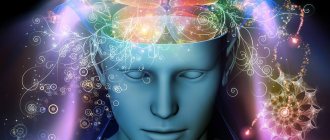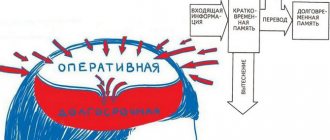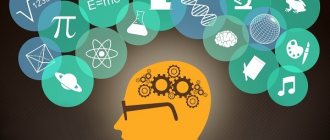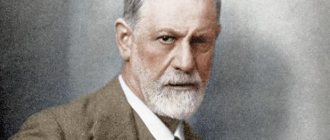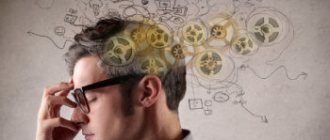What is memory: Freepick A student from China, Chao Lu, in 2005 remembered and managed to name 67,980 digits of pi thanks to his phenomenal memory. Even without such abilities, every person remembers something, reproduces it, and then forgets it every day. Psychologists Benjamin Storm and Robert Nemov talk about how the concept of “memory” is interpreted today and what it is like.
What is memory and what are its capabilities?
Memory is the process of storing and subsequently reproducing an individual's experience. In psychology, memory has been studied for a long time and is interpreted in different ways:
- The associationist theory considered association (connection, connection) to be the main unit of memory. The mechanical addition of associations should become the basis of memory. In the future, it is rethought and deepened.
- Behaviorism viewed memory as a process through which various motor and language skills are acquired.
- Gestalt psychology studied the processes of remembering, focusing on the intention of the subject. This scientific direction studies the social nature of human memory.
At the present stage, memory is considered as a cognitive process, which is characterized by the following properties:
- Volume. It shows the ability to memorize and retain information.
- Speed of memorization (speed of voluntary memorization).
- Readiness to reproduce (how well a person applies available information).
- Reproduction accuracy (the quality of storing and reproducing information).
- Duration of retention (the ability to retain the necessary information for a certain time).
What are the capabilities of our memory? Memory can be trained to remember more. But don’t think that forgetting is the result of faulty memory, emphasizes psychologist and researcher from the University of California Benjamin Storm. Forgetting ensures the proper functioning of memory and thinking, freeing up resources for new tasks.
Neuroscientist Maria Wimber from the University of Birmingham (UK) and colleagues, using a special brain scan, found that memories can “compete” with each other for memory resources. This mechanism helps to select the desired memories from a number of similar ones.
Memory Properties: Freepick
Scientists are also researching what to do to improve memory performance and expand its capabilities. They have established a number of techniques that help activate human memory.
The memory must be turned on
When people do not wait to check that they have learned information, they forget it very quickly. Human cognitive researcher Professor Brad Wyble has found that when people don't expect to be tested, they often don't remember anything. However, when it comes to testing, memorization is two or even three times better.
Classical music improves memory
Listening to classical music increases the activity of genes that are associated with memory and learning processes, and at the same time reduces the activity of genes that affect neurodegenerative processes. Research by a group of authors has shown that classical music actively influences the human genome.
Daytime naps improve memory fivefold
The experiment showed that a daytime nap that lasts less than an hour improves memory performance fivefold. Two groups of subjects memorized pairs of unrelated words. Then the first group slept for 45-60 minutes, and the second watched the video. After testing, it turned out that in the first group the level of memorization was higher.
Scientists have yet to discover the subtle mechanisms of memory. However, what we know today can and should be used to expand our own capabilities.
Introduction
Psychology is the science of the human psyche, studying the patterns of mental phenomena.
All mental phenomena are conventionally divided into three groups: mental properties, mental states and mental processes [2; 3; 5]. These groups of mental phenomena differ from each other, first of all, in their duration and stability in a person’s mental life. Mental processes function directly at a given current moment in time, mental properties are the most stable psychological characteristics of a person, and mental states are short-term and occupy an intermediate position between mental processes and mental properties.
All mental processes , in turn, can be divided into cognitive, emotional and volitional [2; 3]. Cognitive mental processes include mental processes associated with the perception and processing of information. These include perception, memory, thinking, attention, etc. The functioning of cognitive mental processes allows a person to receive information about the world around him and operate with it in his consciousness. Emotional mental processes are associated with a person’s needs: information coming from cognitive mental processes, depending on the correspondence or non-compliance with his needs and desires, becomes significant or not significant for a person, causing mental processes such as affects, feelings, emotions, etc. . They determine a person’s attitude to individual phenomena of the surrounding reality. In conditions of the need to make decisions and overcome difficulties, volitional mental processes appear that are associated with a person’s conscious regulation of his behavior.
This test is devoted to the study of one of the cognitive mental processes of a person - the study of memory.
Types of memory
Memory is spoken of as an extremely complex cognitive function. Many parts of the brain take part in its work, and it is used constantly.
In the book “General Fundamentals of Psychology,” Doctor of Psychological Sciences, academician and corresponding member of the Academy of Pedagogical and Social Sciences and the International Academy of Psychological Sciences R. S. Nemov classifies memory (defines types) according to a number of criteria.
The nature of mental activity
According to this criterion, memory is:
- motor (motor);
- emotional;
- figurative;
- verbal-logical.
Motor memory is the ability to remember, store and reproduce various movements. With its help, various practical and work skills are formed (walking, writing).
Emotional memory captures experienced feelings and emotional states in the form of ideas. Usually, what is associated with emotional experiences is remembered easily and for a long time. This type of memory is important for human motivation.
Figurative memory is associated with the ability to store and use images of perception. The specificity of the captured image is determined by the characteristics of a person’s perception and the work of his system of analyzers.
The verbal-logical type of memory is necessary for memorizing and reproducing thoughts.
Nature of activity goals
Types of memory: Freepick
This criterion is also called the arbitrariness criterion. According to it, memory is divided into:
- Involuntary. When the processes of memorization and reproduction are carried out automatically, without a person’s volitional effort and consciousness control.
- Free. This type of memory is characterized by memorization and reproduction, which requires effort of will.
Duration of information storage
According to this classification, memory is divided into:
- short-term;
- operational;
- long-term
Short-term memory is an intermediate “storage” of data. This type of memorization is associated with a single or very short perception.
Working memory is associated with remembering and reproducing information that is necessary to carry out a specific current activity. After solving the problem, the information may disappear completely.
This happens with material that students study immediately before an exam. This type of memory is transitional from short-term to long-term memory.
Long-term memory stores the entire volume of a person's knowledge and experience. The more often information from it is reproduced, the more firmly it is fixed.
Nature of information acquisition
Memory can be genetic or lifetime. The first preserves species-specific information, and the second preserves a person’s individual experience.
Genetic memory is a tendency to certain behaviors and actions that have developed and become established in a species evolutionarily. For example, the fear of falling and a reflexive reaction to a falling object (bounce away, look back at the noise) is a manifestation of genetic memory. All information that a person learns after birth is classified as intravital memory.
Memorization method
Mechanical and semantic memory are distinguished. Rote memorization occurs through simple repetition. Semantic memory requires associative and semantic connections.
The halls of human memory store enormous amounts of information. Some of it is gradually forgotten, which is natural and necessary for the proper functioning of the brain. Fortunately, memory can be worked on and improved.
Original article: https://www.nur.kz/family/self-realization/1759275-pamat-psihologia-interesnye-fakty/
Memorization
After the brain has encountered new information, it begins to imprint elements of the picture or sensations and experiences. The data enters the system of associative connections. When memorizing, an important factor is the presence of meaning in the information received.
Consciousness establishes the relationship between the material and its meaning, links the content into a single whole. Memorization, however, is divided into types: conscious, subordinate to the goal, or involuntary, that is, unconscious.
Memorization conditions
- In a stable and fresh state of consciousness, for which you need to be rested, as after a healthy sleep, memory processes are activated most correctly.
- The presence of vivid emotions in an event will also help improve memory. Thus, giving what is happening additional coloring makes it easier to remember.
- Favorable, positive environment. A stable mood with “positive notes”.
- Having a desire to remember. Try to master the material by paying attention to its beginning and end. After working through this minimum, consciousness itself will complete the intermediate links and find motivation in their consistent development. So, most books have chapters, the number of which is not difficult to remember. Then focus your memory on the names of the chapters and finding interesting things in them, thus gradually mastering the meaning of what is presented in the book. It is important to pay attention to the middle of the story: how the beginning part differs from the end part. And also highlight your own difficulties in mastering the text of the book.
Having organized your memory in this way, it will become clear that consciousness returns to the material again and again until it brings memorization to a reliable and good quality of storing the received information and correctly reproducing it.
Forgetting
When memorizing, relatively unnecessary information appears, which interferes with organizing consciousness for new tasks and processes. This contradicts the principle of “freshness” of consciousness and stability of perception. If the ability to reproduce or recognize a previously perceived object is lost, we are dealing with forgetting - the final cycle in the work of memory. We forget unimportant pieces of information. This ensures that memory is retained in terms of what is essential or even vital functions.
But forgetting is not always a successful and necessary process for consciousness. Partial forgetting is characterized by the impossibility of sufficient reproduction or the presence of errors in it. Complete forgetting eliminates any possibility of reproduction. Forgetting also includes temporal characteristics: long-term (long-term) or short-term. Naturally, consciousness filters out the information received due to the low quality of the memorization process that occurred or the insignificance of the perceived facts. Business people make it a point to write down plans in a diary to make recall processes easier.
When falling asleep and the dream itself, the consciousness is not tuned to obligatory memorization. During sleep, which is essentially a rest for the body, unfavorable factors are forgotten and negativity is erased from memory.
But let’s not forget about the pathological memory disorder, accompanied by forgetting. It is important to prevent stress, follow a routine and get good sleep. An important role is played by nutrition and the elimination of harmful substances, for example, excessive coffee and tea.
